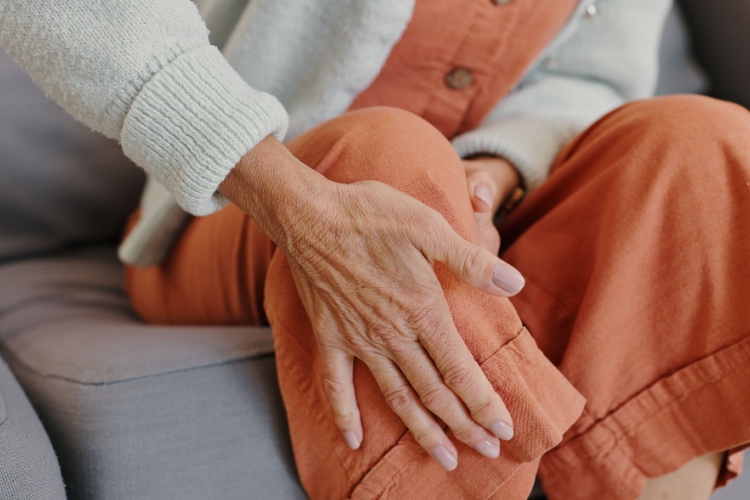
As we age, maintaining bone health becomes a vital part of our overall well-being, especially for seniors who are at risk of or already dealing with osteoporosis. This condition leads to weakened bones, making them more susceptible to fractures and breaks. However, with the right strategies in place, seniors can still enjoy an active and fulfilling life while managing the effects of osteoporosis.
Table of Contents
- Understanding Osteoporosis and Its Impact on Seniors
- Identifying Personal Triggers and Risk Factors
- Practical Lifestyle Adjustments
- Building Stronger Bones Through Nutrition
- Strengthening the Body with Safe Exercises
- Managing the Emotional Impact of Osteoporosis
- When to Seek Support from Blue Moon Senior Counseling
Understanding Osteoporosis and Its Impact on Seniors
Osteoporosis is a condition that gradually weakens bones, making them brittle and more prone to fractures. While it is often referred to as the “silent disease” because it progresses without obvious symptoms, the consequences of undiagnosed osteoporosis can be severe. For seniors, even a minor fall can lead to fractures in the hips, spine, or wrists, which can have long-lasting impacts on mobility and independence.
Common Effects of Osteoporosis on Daily Life:
- Increased risk of fractures, even from low-impact activities
- Limited mobility due to fear of falling or injury
- Potential for chronic pain or discomfort, especially in the back or hips
- Difficulty performing everyday tasks without assistance
Understanding how osteoporosis affects seniors is the first step toward creating a plan that helps maintain quality of life and reduces the risks associated with weakened bones.
Identifying Personal Triggers and Risk Factors
While some risk factors for osteoporosis, such as age and gender, are beyond control, there are personal triggers that seniors can actively address to manage the condition better. Seniors should work with their healthcare provider to understand what factors may be contributing to bone density loss and create a plan to address them. However, studies do show that Osteoporosis affects about one in five women over age 50, but only one in 20 men.
Key Risk Factors for Seniors with Osteoporosis:
- Family History: Genetics can play a role in the likelihood of developing osteoporosis.
- Medications: Long-term use of certain medications, such as corticosteroids, can weaken bones over time.
- Lifestyle Factors: Smoking, excessive alcohol consumption, and a sedentary lifestyle can all contribute to bone loss.
Practical Lifestyle Adjustments
Making adjustments to daily life is crucial for managing osteoporosis. From creating a safer living space to making small but effective changes in everyday routines, these steps can help seniors reduce the risk of fractures and enhance their overall well-being.
Home Modifications for Fall Prevention
Seniors with osteoporosis are at an increased risk of falling, which can lead to dangerous fractures. Fortunately, there are practical steps that can be taken to make the home environment safer:
- Clear Clutter: Keep hallways and living areas free from tripping hazards like loose rugs, cords, or clutter.
- Install Handrails and Grab Bars: Handrails along stairs and grab bars in the bathroom provide extra support and stability, reducing the risk of falls.
- Improve Lighting: Ensuring that all rooms are well-lit, especially staircases and entryways, can help seniors navigate their homes more safely.
Daily Activity Adjustments
Simple changes in the way seniors approach daily activities can help reduce the risk of injury:
- Avoid Twisting Motions: Twisting the spine or bending at the waist should be avoided. Instead, bend from the hips and knees when lifting objects.
- Take It Slow: Seniors should pace themselves during physical activities, whether it’s walking, cooking, or gardening. Taking breaks helps avoid overexertion.
Proper Footwear and Mobility Aids
Wearing the right footwear and using mobility aids when necessary can further reduce the likelihood of falls:
- Choose Non-Slip Shoes: Shoes with good arch support and non-slip soles can prevent accidental slips, especially on smooth surfaces.
- Use Walking Aids: Canes or walkers provide stability and can give seniors the confidence to move about more freely without fear of falling.
Building Stronger Bones Through Nutrition
Diet plays a key role in managing osteoporosis. Seniors with osteoporosis should focus on eating foods that promote bone health and prevent further bone density loss.
Essential Nutrients for Bone Health:
- Calcium: Calcium is a fundamental building block for healthy bones. Seniors should aim for 1,200 mg per day through dairy products, leafy greens, and fortified foods.
- Vitamin D: Vitamin D helps the body absorb calcium. Spending time outdoors in the sun, eating fortified foods, or taking a supplement can ensure seniors get enough of this essential nutrient.
- Magnesium and Vitamin K: These nutrients support bone health and can be found in foods like nuts, seeds, and leafy greens.
Dietary Changes to Consider:
- Limit Salt and Processed Foods: Too much salt can increase calcium loss, so it’s important for seniors to limit their intake of processed and salty foods.
- Avoid Excessive Caffeine and Alcohol: Both caffeine and alcohol can interfere with calcium absorption, so it’s best to enjoy them in moderation.
By making smart dietary choices, seniors can strengthen their bones and reduce the risk of fractures.
The U.S. Preventative Task Forces also recommends that women over the age of 65 should get tested for osteoporosis.
Strengthening the Body with Safe Exercises
Staying active is vital for managing osteoporosis. However, seniors need to engage in exercises that are both safe and effective at building bone strength. It’s always recommended that seniors consult their healthcare provider or a physical therapist before starting any new exercise regimen to ensure the activities are appropriate for their condition.
Weight-Bearing Exercises
Weight-bearing exercises help to maintain bone density by encouraging the bones to bear weight. Walking, light jogging, or even climbing stairs are excellent examples of low-impact exercises that can strengthen bones without causing harm.
Balance and Flexibility Training
Improving balance is crucial for preventing falls. Exercises like Tai Chi or yoga help to improve balance and flexibility, reducing the risk of falls while also promoting overall wellness.
Strength Training
Using light weights or resistance bands can help strengthen muscles, which in turn supports the bones. Seniors should focus on exercises that build muscle in the legs, back, and arms.
The National Institute on Aging has also listed different types of exercises you can do! They also provide video examples on their YouTube channel.
Managing the Emotional Impact of Osteoporosis
Living with osteoporosis can take an emotional toll, leading to feelings of anxiety, frustration, or even depression. The fear of falling or sustaining a fracture may cause some seniors to withdraw from activities they once enjoyed.
Dealing with Fear and Anxiety
Seniors with osteoporosis often worry about the risk of injury, which can lead to heightened anxiety and reduced participation in physical or social activities. It’s important to address these fears directly by seeking reassurance from healthcare professionals and adopting strategies that promote confidence in daily activities.
The Importance of Social Support
Isolation is a common concern for seniors, especially those managing chronic conditions like osteoporosis. Staying connected with family, friends, and peer groups can provide emotional relief and encouragement. Support groups, both in-person and virtual, can also offer a valuable space for sharing experiences and advice.
Blue Moon Senior Counseling
At Blue Moon Senior Counseling, we understand that managing osteoporosis isn’t just about physical health—it’s about mental and emotional well-being too. Our licensed therapists specialize in helping seniors navigate the emotional challenges that come with conditions like osteoporosis. Through personalized telehealth counseling sessions, we offer guidance and coping strategies to help seniors regain control of their emotional health.
When to Seek Support from Blue Moon Senior Counseling
Coping with osteoporosis is not just about making physical adjustments; it’s also about addressing the emotional and psychological impact of the condition. If you or a loved one is struggling with anxiety, fear of injury, or isolation due to osteoporosis, Blue Moon Senior Counseling is here to help.
Our licensed therapists provide telehealth counseling designed specifically for seniors, offering personalized support that can improve emotional well-being and overall quality of life. Whether it’s managing feelings of anxiety, depression, or simply learning how to live confidently with osteoporosis, our team is here to guide you every step of the way.
Contact us today to learn more about how our counseling services can help seniors manage both the physical and emotional challenges of osteoporosis.
FAQs
- What is the best type of exercise for seniors with osteoporosis?
Weight-bearing exercises like walking, light jogging, or stair climbing are great for maintaining bone density. Balance and flexibility training, such as yoga or Tai Chi, are also effective in reducing the risk of falls.
- How can seniors modify their homes to prevent falls?
Simple modifications like installing grab bars in the bathroom, clearing clutter, using non-slip mats, and ensuring adequate lighting can help prevent falls in seniors with osteoporosis.
- What should seniors with osteoporosis include in their diet?
Seniors should focus on calcium-rich foods like dairy, leafy greens, and fortified cereals. Vitamin D is also essential for calcium absorption, and supplements or sunlight can help ensure seniors get enough.
- How can emotional counseling help seniors with osteoporosis?
Emotional counseling helps seniors manage the anxiety, fear, or depression that can come with living with osteoporosis. Licensed therapists at Blue Moon Senior Counseling offer coping strategies and emotional support tailored to the unique needs of seniors.
- When should a senior with osteoporosis seek professional help?
If osteoporosis is impacting a senior’s physical or emotional well-being, it’s time to seek professional help. Physical therapists can help with safe exercise routines, while licensed counselors can assist with managing the emotional aspects of living with the condition.










